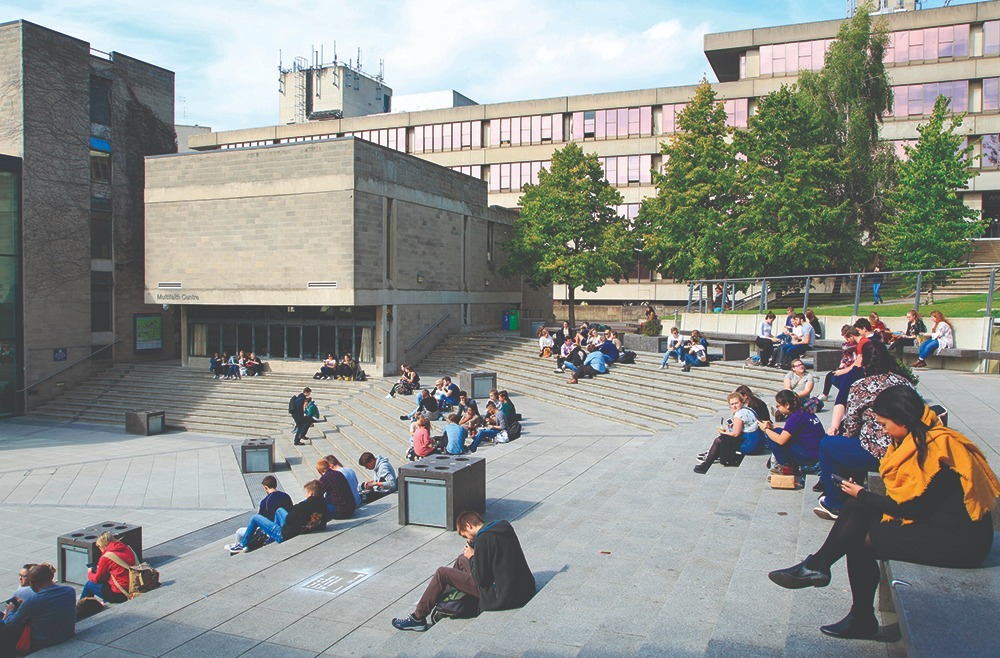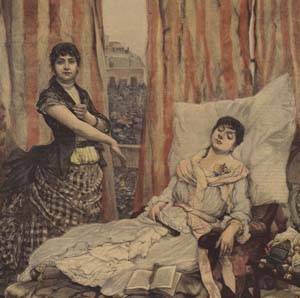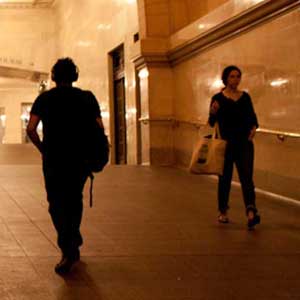
This article is a preview from the Summer 2020 edition of New Humanist
Prevent, the British government’s principal counter-terrorism programme, has come under sustained criticism ever since New Labour introduced it in response to 9/11. Critics have pointed to its disproportionate focus on Muslims and the stigmatisation that follows a referral. It has come under scrutiny for its use of questionable semiotics to identify extremism and its targeting of large numbers of children under the age of 15. Then there is its strangling effect on freedom of speech and thought.
In October 2019, it was revealed that a database managed by the National Counter-Terrorism Policing Headquarters had collected the names and details of thousands of people who had passed through the programme – without their permission. This data is made available to other state agencies, even though a minuscule number of the individuals named – less than 1 per cent – has been of ongoing interest to the police.
The stated purpose of Prevent is to safeguard and support those vulnerable to radicalisation and prevent people from being drawn into terrorism. No quibble with that on the face of it. But the inclusion of Greenpeace and Extinction Rebellion on their watchlist, revealed in January, turns a “protective” measure into universal surveillance. Since the Counter-Terrorism and Security Act of 2015 it has become a statutory duty for professionals to refer individuals of concern. Those charged with this duty work for institutions that come into contact with young people and children: education, social services, local authorities, health, youth services and the police.
This kind of saturation policing has been used to create a “hostile environment” against immigrants by turning landlords, employers, GPs and registrars into border agents, as part of the government’s total securitisation agenda. An altogether more resource-heavy strategy is the undercover policing of social justice, trade union and climate change campaigns, which blows its cover from time to time. Most recently we discovered the scandal of cops bedding women activists deceitfully whilst being embedded long-term in various campaigns. Why, in the name of protecting us, do the state’s actions feel like assault at worst – arguably rape – and coercive control at best? Which citizens are being protected at the expense of which others?
Prevent has enjoyed some support in progressive circles because it is one of the major government programmes aimed at confronting fundamentalism and fascism. But with the inclusion of activists, simple protest in a democratic society is being recast as a “threat to national security”. Undercover policing has been justified on the basis that these groups represent a form of “domestic extremism”. The loose definition of extremism further muddies the water: the government has defined it in the Prevent strategy as “vocal or active opposition to fundamental British values, including democracy, the rule of law, individual liberty and mutual respect and tolerance of different faiths and beliefs”. Britain has breached most of these tenets, both in its long colonial past and in modern history. By falsely claiming the moral high ground, it exhibits the racism of colonialists who disguise the oppression of
others as a civilising mission.
In 2018, roughly 7,500 people were referred to Prevent. In its statistical summary, the government puts a positive gloss on the figures, focusing on the 5 per cent who were sent off for “correction” via the Channel programme for those deemed vulnerable to terrorism. Of these 394 individuals, 45 per cent were referred for concerns related to Islamist extremism and 44 per cent for right-wing extremism. You could be forgiven for assuming that the balance between Islamist and far-right targets is about equal. But when you look at the total number of referrals, alleged Islamist extremism accounts for 44 per cent and white extremists only 18 per cent. This imbalance supports the fears of Muslim communities that they are caught in the crosshairs.
In fact, compared to the hated stop and search laws, which have also been condemned for disproportionately targeting black and Asian men, Prevent comes off worse. At least with stop and search, 17 per cent of the 280,000 searches carried out in 2017-18 resulted in arrests. Of those referred to Prevent, only 1 per cent were passed on to police in relation to ongoing terrorist concerns.
A former NUS Black Students’ Officer, Ilyas Nagdee, reported in the Guardian in 2019 that many Muslim students were afraid of picking subjects like human rights or counter-terrorism, or expressing opinions on the Iraq war, in case they were referred to Prevent. They might have heard the story of the 17-year-old schoolboy who was referred for wearing a “Free Palestine” badge. One of the Prevent criteria for assessing those vulnerable to radicalisation is “engagement with a group, cause or ideology”, so unspecified that it has chilling implications for freedom of expression and thought, as we saw when the police net closed in over climate change campaigns.
There are 22 factors that professionals need to take into account when assessing individuals, which include “feelings of grievance and injustice; feeling under threat; a need for identity, meaning and belonging; a desire for status; a desire for excitement and adventure; a need to dominate and control others; susceptibility to indoctrination; a desire for political or moral change”. Almost any adolescent would fit in with this fatuous list. Indeed it is comparable to the equally fatuous markers of communist leanings in the 1950s US army manual How to Spot a Communist: “While a preference for long sentences is common to most Communist writing, a distinct vocabulary provides the more easily recognised feature of the ‘Communist Language’. Even a superficial reading of an article written by a Communist or a conversation with one will probably reveal the use of some of the following expressions: integrative thinking, vanguard, comrade, hootenanny . . . ” The list goes on. Poor is the calibre of the communist who is undone by a piece of literary criticism.
According to a report in the Daily Telegraph, one child under the age of ten is referred to Prevent every day. There was a huge spike in the numbers after 2015, when it became a statutory duty for professionals to report signs of radicalisation – one third of referrals come from educational institutions and one third from the police. The government’s own report on safeguarding and radicalisation in 2017, which reviewed Prevent, concluded that “over-zealous referrals” by schools were a problem. No wonder, if failure to report concerns could end in staff being sacked. The fact that only 10 per cent of referrals came from family and friends points to high levels of distrust. However, that 10 per cent could also be interpreted as a significant number of parents being desperate for support.
Sara Khan, who heads the government’s Commission for Countering Extremism, described the work of the Prevent-funded organisation Making A Stand, which “visited hundreds of Muslim women in nine cities across the UK and which taught mothers theological counter-narratives to extremist ideology and how they can safeguard their children against radicalisation . . . these same women did not feel that ‘representative’ Muslim organisations or mosques were providing them with such support.” Stephen Cowden, a social work academic at Coventry University, believes that social workers who steer “vulnerable young people away from being groomed into the political networks of violent Islamist and neo-Nazi groups” are in “no doubt that the problems they deal with every day would be so much worse if we didn’t have [Prevent]”.
However, these positive perspectives were not enough to counter a tsunami of criticism. In 2019 the government announced an independent review of the programme, led by Lord Carlile QC, due to report to parliament by August. Lord Carlile’s appointment drew objections, due to his strong support for Prevent in the past. Following a legal challenge by Rights Watch UK, he stepped down. No replacement has yet been appointed.
The hostile environment for migrants – championed by Theresa May until the Windrush scandal broke in 2018 – was partly justified as a strand of the counter-terrorist strategy. There was minimal evidence that it helped to exclude foreign nationals who posed a security threat, but the very fact that “immigration and security” have existed as a single ministerial portfolio since 2014 points to the convergence. People were encouraged to report anyone they thought was illegal to the Immigration Enforcement Hotline. Landlords and employers faced fines, or even criminal sanctions, for not checking on the status of tenants and employees. Immigration raids became increasingly common, with border agents descending on workplaces, restaurants and register office weddings. Borders had moved inwards, suffocating the freedom of daily movement and encouraging suspicion and hatred of the “other”.
Liberal and progressive left circles are divided when it comes to Prevent. In June 2019, I attended a meeting in Birmingham intended to support local schools facing noisy and occasionally intimidating protests against the teaching of LGBT+ rights. The schools were teaching the No Outsiders programme as part of their duty under equality law. Jointly organised by a South Asian LGBT+ group called Finding A Voice and the journal Feminist Dissent, the meeting was particularly aimed at supporting Anderton Park School. When I tweeted my support for the meeting, several left-leaning individuals responded that we shouldn’t be supporting No Outsiders as it was funded by Prevent. Yet there is a real need to respond to “the ideological challenge of terrorism” and programmes like No Outsiders are a perfectly legitimate strategy for the state to employ. If all that Prevent did was to fund the teaching of progressive values, I would be fully behind it. The problem comes when the strategy is delivered in a targeted but ad hoc fashion, placing people on a conveyor belt that could end up at the police station.
A letter from supporters of LGBT+ rights published in the Independent exposed many of the confusions and rifts within the left on this issue. While supporting the inclusion of LGBT+ issues in primary school classes, the letter said they disapproved of the way in which Muslim communities had been framed by the government and the media. The letter did not take into account the fact that the protests are being orchestrated by fundamentalist groups such as Islamic RSE, who are using those Muslim parents to further their own deeply regressive agenda. Islamic RSE opposes relationship and sex education teaching, which is set to become compulsory in primary schools in 2020. The letter argues that sections of the British population, including Boris Johnson, are homophobic. That is true enough, but it should be possible to recognise that LGBT+ rights have been weaponised by a hypocritical government in its espousal of British values against conservative Muslims, without abandoning the challenge to homophobia wherever it raises its head.
Indifference or even sympathy towards Prevent and the hostile environment often stems from the notion that potential terrorists and undocumented migrants have no human rights. They are therefore not deserving of fair and just means of apprehension. But it is much harder to portray political activists as a danger to national security. The outcry against the police inclusion of environmental campaigns in their definition of extremism under Prevent proves this point. Could this be why the state takes covert action in its surveillance of what the public might see as “just” causes? Embedding police spies for several years at a time in campaigns is far more resource-intensive than mobilising entire populations to do your dirty work for you on pain of penalties. This is not to suggest that there are no embedded officers in the Islamist or white extremist movements – we will only discover that if and when their cover is blown.
Even in liberal democracies, the surveillance of militant political movements has long been seen as a justifiable state role. The Undercover Research Group has drawn up a list of more than 1,000 left-wing groups that have been spied upon since 1968. Environmental activists are usually non-violent, although they may aim to be disruptive and their actions may result in property damage. Activists who get a jury trial for offences like trespass or criminal damage are often acquitted. Yet the term “domestic extremist” first emerged in the mid-2000s in relation to animal liberation activists and was only later broadened to include other kinds of groups linked to single-issue causes and campaigns.
According to an article on undercover policing by Raphael Schlembach, 150 undercover officers employed by the Special Demonstration Squad and the National Public Order Intelligence Unit of the Metropolitan Police alone have targeted hundreds of groups. Mark Kennedy was embedded in a group of eco-activists when he was outed in 2010 by fellow activists who found his passport. He had spent seven years undercover, in which time he had a number of girlfriends, including a six-year relationship with a woman named as “Lisa”. The state sought to quash the fallout by paying compensation to at least ten women who had had relationships with other undercover officers. The guidance on how police spies conduct themselves, obviously not worth the paper it is written on, states that they must be careful not to breach Article 8 of the European Convention on Human Rights, which provides a right to a “private and family life”.
According to Mark Kennedy, “each undercover spy cost[s] £250,000 a year”. We do not know the total number. On the basis of the 150 mentioned above, that would be a sum of £37.5 million per annum. Compare that with turning almost every official in the country who comes into contact with young people or migrants into unpaid agents of the state. That’s a global reach at a fraction of the cost.
The fact that the government called for a review suggests that failure to detoxify the Prevent brand may have robbed the programme of its effectiveness. It is certainly a gift to religious fundamentalists – the narrative of victimhood makes it harder to challenge them. The changes in 2015 were meant to be a shift from surveillance to safeguarding, but failed to make the programme more attractive.
While criticism finally forced a rethink on Prevent, the uproar around Windrush migrants being deported after spending a lifetime in the UK did not weaken the state’s commitment to immigration control. The state will not liberalise its policy, just cover its iron fist with a velvet glove: for instance, replacing “hostile environment” with its new name “compliant environment”. Nor will the spycops scandal persuade the state to abandon undercover work. We are living in an age of surveillance, part of a global trend. In response to political protest, the state will only disguise its invasive strategies as best as it can.

